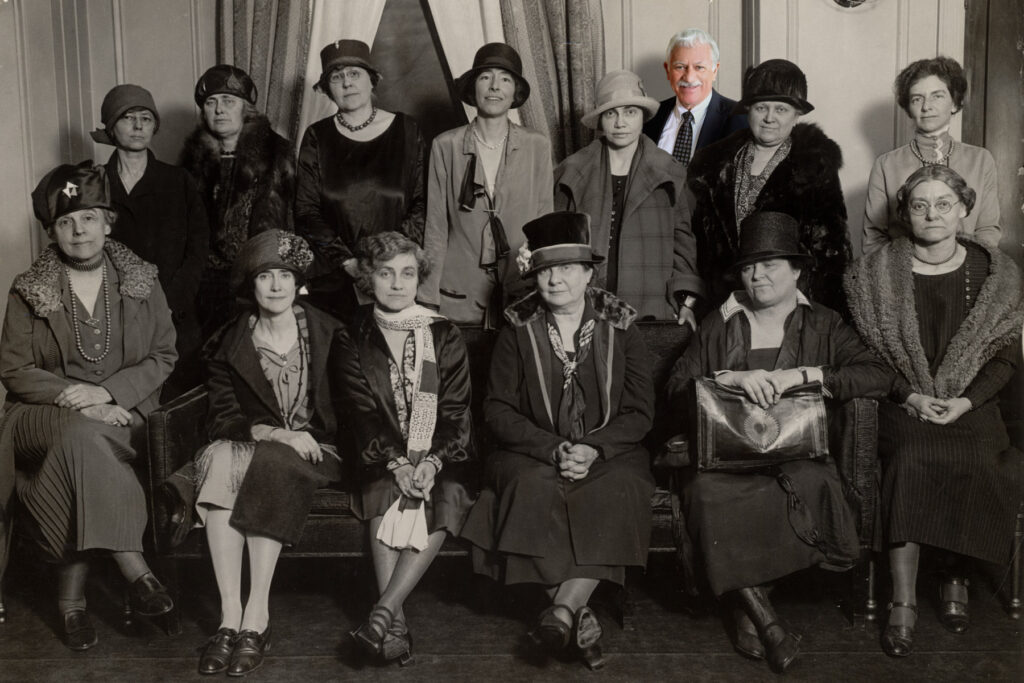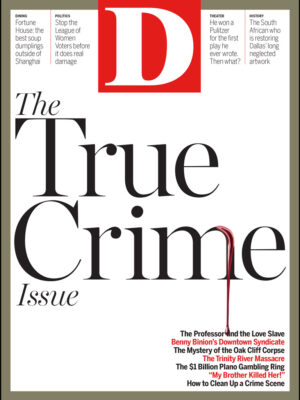Susybelle Gosslee, the vice president of advocacy for the League of Women Voters of Dallas, sent an email last fall to Dallas ISD trustees. She told them that the Dallas chapter planned to hold meetings at district schools to inform the public about the 2015 DISD bond, which would be voted on in November. DISD officials said the League could possibly co-host the meetings, but then lawyers for the district got involved. By law, DISD could not use public money or facilities to advocate for or against the bond. It could only provide information, yet here was the League’s vice president of advocacy asking for the space. The lawyers broke this news to the League.
Which is why, shortly before an informational meeting at Hillcrest High School, DISD officials were astonished to find that Gosslee and the League were promoting the event on Facebook as their operation. The League went so far as to send trustees a schedule and the names of speakers they had lined up. (Their choice to discuss school finance was oft-quoted SMU political science professor Cal “I’m Available” Jillson. They did invite trustee Mike Morath, but district lawyers said he couldn’t participate.) When told again she couldn’t run the show, Gosslee got her hackles up.
“She said it was insulting to the League,” said one DISD person who dealt with Gosslee. “She said the League was too important to be treated this way. Too important to be told the district has to adhere to state law? It was silly and petty, but given this group, it wasn’t surprising.”
Not surprising, because this person says the Dallas chapter of the League of Women Voters has been raging against the dying of its own light for decades. This squares with what multiple sources—some of whom were recent members, some of whom have dealt with the League on a regular basis—say about the League. It is full of well-meaning but naïve and isolated officers who are disconnected from modern politics and the diverse population of Dallas.
“It’s such an insular group, but many of them I have enormous respect for,” says one recent member. “The problem is that it is still a group that talks among itself. In today’s world, that spells doom. They’ve got to engage in modern technology, social media, and get involved in projects that young voters are interested in.”
None of which is worthy of scorn (and all of which is disputed by the League’s president). The problem is that the League’s brand is still strong enough to occasionally draw attention from voters who may think it is producing worthwhile, impartial voting advice. The recent bond election shows that’s not always the case.
The national League of Women Voters has a proud history. It was formally established in 1920, during the movement to ratify the 19th Amendment, which guaranteed American women the right to vote. It is at once an advocacy group and a nonpartisan organization that educates voters on the key issues of the day. Nationally, the League has fought for many forward-thinking causes, everything from campaign finance reform to the abolition of the death penalty to universal healthcare.
Before the internet, the League and its chapters provided a valuable service by producing voters’ guides for every major election, usually published in newspapers (a cost the papers often absorbed). Even though most papers no longer do this, with a little web searching you can easily find recent guides. A good example is the guide put out by the League of Women Voters of Texas regarding the constitutional amendments voted on in November. The guide was well-written, and it presented a neutral-language list of pros and cons for each measure.
Unfortunately, the same web search will probably bring up the “fact sheet” produced by the Dallas chapter that purported to explain the issues surrounding the $1.6 billion 2015 Dallas ISD bond. That “fact sheet” stands as an astonishing indictment of the League’s recent approach to important issues.
The fact sheet was presented in a Q&A format, with answers being “yes” or “no.” There were so many biased and nonsensical questions that I have trouble picking my favorite to share. With limited space, I’ll have to skip the spectacularly wrong item on the “fact sheet,” the one declaring that the board of trustees doesn’t vote on where building funds are spent. Per policy, trustees vote on every single construction project and change order.
Here’s one example of a ridiculously biased “fact sheet” question: “Did the Future Facilities Task Force vote on a plan to be approved by the DISD board?” Answer: “No.” The question and answer make it sound as if the task force didn’t approve of the bond. But those task forces don’t vote. The task forces didn’t vote in the 2002 or 2008 bonds either. Here’s how the League could have phrased the question: “Did the 2015 task force hold more than 50 community meetings and deliberate for nearly a year before it sent its plan to the board?” The answer: yes.
“It is very clear that the facts [on the ‘fact sheet’] were chosen to distort opinion in a particular direction,” trustee Mike Morath said before the November vote. “Given the League of Women Voters’ history, I find it deeply troubling that they would put their name on something so clearly biased.”
Though the Dallas chapter says he had no involvement in drafting the “fact sheet,” it is hard for me to believe that Bill Betzen didn’t help. He is the education issues chair for the League, and the biases of the “fact sheet” line up precisely with his complaints about the bond. Even given the infinite space of the internet, I could not fully detail the ways in which Betzen’s supposed advocacy for education is a crime against our citizenry. Suffice it to say that it takes only a brief if inadvisable foray into any online comment section or social media page that deals with DISD to see how Betzen’s rantings suggest he’s the last person you’d ever want near anything billed as a “fact sheet,” let alone “nonpartisan.”
Dallas chapter president Eileen Rosenblum takes issue with almost everything I just wrote. She says the League’s “fact sheet” was produced in response to concerns about equity voiced by southern Dallas. (This ignores that the largest southern Dallas district, District 9, voted 60-40 for the bond, mirroring the final vote.) She says the bond “fact sheet” is only a tiny example of the vast good works done by the local chapter, including voter registration efforts. (Undeniably true.) She says a great many people contributed to the bond information put out by the League and that it was nonpartisan. I told her I believe it so neatly mirrored the anti-bond talking points that to claim it wasn’t influenced by them is absurd.
“Hindsight is always 20/20, and if I could do the bond ‘fact sheet’ over, we would change some things, yes,” Rosenblum says. “We wouldn’t do it as a yes-no format, for example.” She says that in the future, all such informational sheets will be more thorough in examination of the issues and will go through a review board before publication online, which is good news.
One could argue that I’m being too harsh, that this is all the equivalent of chastising a crazy aunt for rambling Facebook posts. And it could be argued that the League’s “fact sheet” had little effect. The bond did pass by a wide margin. In fact, eight of the nine DISD districts voted in favor of the bond, the money from which will go toward aligning facilities with programmatic efforts on behalf of early education, choice schools, and career and technical schools.
But that’s precisely the reason I think it is important to take the League to task. Because it needs to change if it wants to be effective. And I believe Rosenblum when she says her organization is trying to learn from its mistakes (without admitting the “fact sheet” was a mistake). If the League does learn, if it becomes less insular and throws out some of its more close-minded, agenda-driven, status-quo-preserving officers, then I welcome its re-entry into serious discussion of city issues.
Get the D Brief Newsletter
Author







